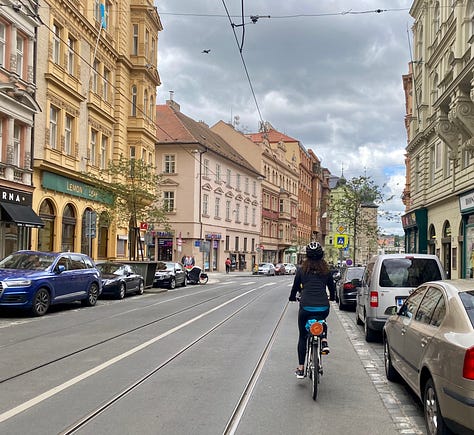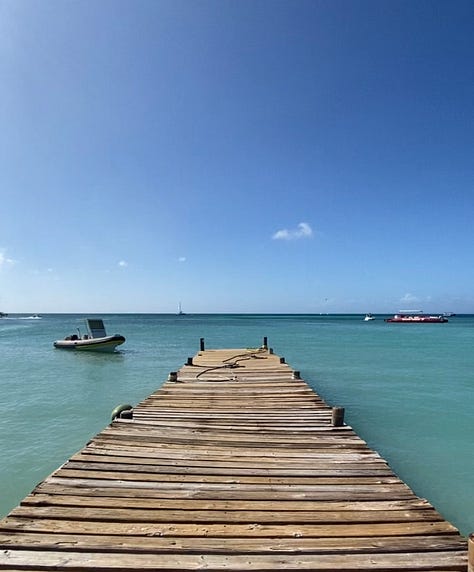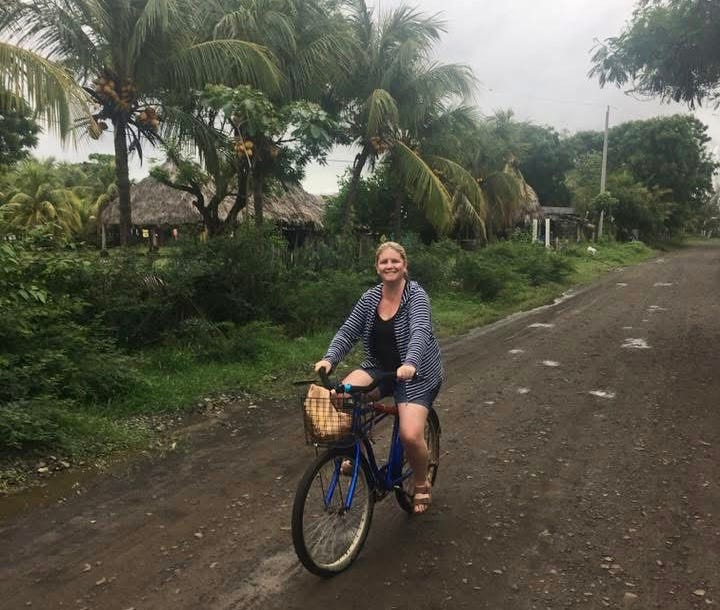What No One Tells You About Starting Over
Starting over isn’t just exciting... it’s messy, emotional, and sometimes lonely as hell. Here’s what no one tells you about leaving behind a familiar life and finding your footing somewhere new.
✈️ Welcome to Midlife Nomads, your weekly hit of real talk, smart ideas, and helpful tools for building a location-independent life through remote work, travel, and business.
Starting over sounds exciting, doesn’t it? A fresh start. A blank slate. A new chapter.
And it is all those things. But what no one tells you is that starting over can also be exhausting and disorienting. Sometimes, it’s lonely as hell.
We romanticize reinvention, but the truth is that leaving behind a familiar life comes with its own kind of grief. Even when you choose to go, even when you know it’s the right move, a part of you still mourns the version of life you left behind.
No one talks about how strange it feels to wake up in a new country and realize you don’t know where to buy light bulbs. (Sometimes trying to find a place to do laundry or pick up everyday staples is a grand adventure, but I’ve found that if other things aren’t going right, the fun gets sucked right out of it.)
No one seems to understand how weirdly exhausting it is to exist in a place where every single thing — from language to social norms to the way people cross the street — feels unfamiliar.
“But you’re on vacation, how can you be anything but grateful?!” Erm, no… I’m not on vacation, Rebecca. I’m working my tail off for this life. (But let’s leave the annoying misconceptions others have about our life of luxury and leisure for another day.)
Anyway, the kind of homesickness I’m talking about isn’t just about missing a place. It’s about missing the ease with which you lived your life, as much as you might have wanted parts of it to change.
Recommended reading:
Freedom and Grief Can Coexist
When I first started spending real time in other places, settling into monthly rentals and testing out new cities, I thought I’d feel nothing but excitement and hope for the future.
Like I’d finally stepped into the life I’d been working toward, leaving behind the stress, the noise, the frustration. And to some extent, I did.
But I also felt something I wasn’t expecting: an undercurrent of loss.
My life has changed dramatically in recent years. My kids have grown up, needing me in different ways than before. My work has become increasingly location-independent (not by accident, but by design). This is exactly what I planned for, what I wanted.
And yet, in the quiet moments, I sometimes catch myself grieving the life I’m leaving behind. Not because I want it back, but because change, even the good kind, comes with a sense of letting go.
It’s not regret, don’t get me wrong. Just… a quiet ache for the things I didn’t realize I’d miss. The little routines. The ability to move through the world without thinking about how to do basic things. Being surrounded by people who speak my language. The casual friendships and acquaintances I took for granted, like the neighbours we don’t really know but exchange pleasantries with anyway.
I’m coming around to the realization that freedom and grief can exist in the same space.
You can be thrilled about your new life and still miss what you left behind. You can feel at home in one moment and like an outsider the next. You can love your decision and still struggle with it.
What If You’re Just Starting to Think About Leaving?



A few years ago, becoming a nomad or an expat felt like a niche choice. It was something for retirees, remote workers, or the ultra-adventurous. But now? A lot of people who never considered this life are starting to wonder if they need a Plan B.
Maybe you’re one of them.
Maybe you’re watching things unfold in your home country and feeling unsettled. Maybe you’re craving more freedom, more security, or just more options. Or maybe it’s not political or economic at all. Maybe your work is now fully remote. Maybe you’re simply realizing that life is short, the world is wide, and staying put forever isn’t a requirement.
If that’s where you are right now, know this: curiosity is reason enough to start exploring your options. You don’t have to be in crisis mode to decide that a different life might suit you better. And you don’t have to explain it to anyone or feel guilty about it, either.
Recommended reading:
If You’re Already in the Middle of It…
Those who have already made the leap know that starting over isn’t just logistics; it’s an emotional rollercoaster. Some days, you feel like you’re thriving. Other days, you wonder what the hell you’ve done. That’s normal.
Remember:
Adjustment isn’t instant. It takes months (sometimes years) to feel truly settled—and many people never do.
Routine helps. Find small, familiar comforts: a go-to coffee brand you can take with you, a morning ritual, a favourite activity that fits in a suitcase.
Homesickness doesn’t mean you made the wrong choice. It means you made some great memories in your earlier adventures, and you should cherish those.
Expect waves of doubt, but remember why you made this choice in the first place.
Some days, the unfamiliar starts to feel routine. You instinctively know where to find your favourite snacks. You stop double-checking the currency conversion in your head. A neighbour waves, and you realize you’ve become a familiar face, too.
But other days, the distance hits hard. A cultural misstep leaves you feeling like an outsider. A bad day makes you long for the comfort of the life you left behind. You wonder if you’ll ever feel fully at home, especially if you’re nomading vs. establishing a new life in one place as an expat.
And when those doubts creep in — and they will — writing things down can help you make sense of them. I journal almost every day, and on the days I miss it, I feel the difference. It’s an outlet; a way to process the second-guessing that inevitably comes with big change.
Some days, I’m just venting, letting the frustration spill onto the page. Other days, I’m sorting through the real questions in a conversation with myself:
Is it this place that isn’t working for me, or am I just having a rough day?
Am I truly missing out on something valuable, or am I romanticizing what I left behind?
Is there something I can shift here, or is it time to make a bigger change?
Journaling won’t always give you immediate answers, but it will help you sit with the uncertainty instead of letting it spiral. The only way to navigate change is to allow yourself to fully feel all the good and bad that comes with it, without rushing to “fix” things before you even understand what’s wrong.
Slowly, piece by piece, you build something new. You find a rhythm. You create small pockets of familiarity where things once felt foreign. The ache of what you left behind doesn’t disappear, but it shifts. Instead of pulling you backward, it reminds you of where you’ve been and how far you’ve come.
Starting Over Isn’t Just About Where You Go
It’s about who you become in the process.
And no matter where you are in that journey—just thinking about leaving, already in the middle of the transition, or years into a new life—know this: It’s okay to feel both the excitement and the grief.
They don’t cancel each other out.
Starting over is messy. It’s complicated. It’s emotional and scary. But it doesn’t erase the past, or diminish anything you’ve done before. Starting over adds to your story. It challenges you, stretches you, and reveals parts of yourself you might never have discovered otherwise.
You might also like:










I can relate to this even though I do not work remotely or have not retired out of the country. Life is change. Sometimes chosen and sometimes not.